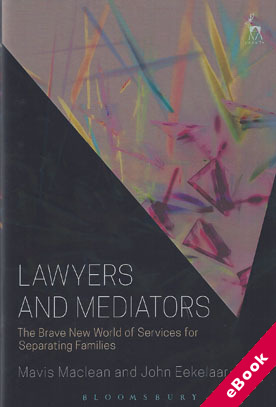
The device(s) you use to access the eBook content must be authorized with an Adobe ID before you download the product otherwise it will fail to register correctly.
For further information see https://www.wildy.com/ebook-formats
Once the order is confirmed an automated e-mail will be sent to you to allow you to download the eBook.
All eBooks are supplied firm sale and cannot be returned. If you believe there is a fault with your eBook then contact us on ebooks@wildy.com and we will help in resolving the issue. This does not affect your statutory rights.
Do lawyers make matters worse, or do they provide information, advice and support which can help to prevent disputes arising or manage them when they do? Do mediators enable parties to communicate and reach agreements tailor made to their needs? Or working outside the legal framework, do they find it difficult to protect weaker parties and access expert advice? What happens when lawyers become mediators?
This book will describe the structure of service provision and the day to day work of lawyers, mediators, and lawyer mediators, drawing on empirical work carried out 2013-15 immediately after the recent changes to the management of divorce and separation within the family justice system. The reduction in legal aided help in 2013 and the failure of mediation to fill the gap in 2014-15 have given rise to a difficult debate.
This book aims to provide an account of some of the practical effects of these policies through a description of daily work of practitioners in the sector. It raises the question of whether we need to choose between traditional legal services and the new processes of private ordering or whether intermediate positions might be possible.